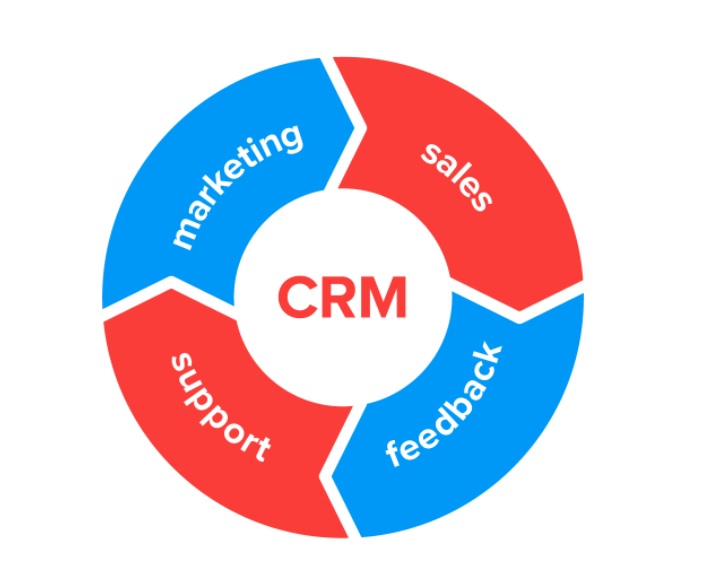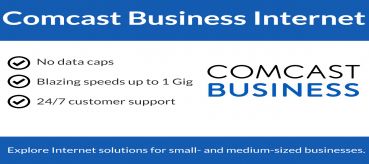CRM System Best Practices for B2B Businesses

The B2B buying environment is a little more complex and multidimensional than other business models. Strong business relationships are necessary to close sales and drive corporate growth, especially with increased workloads every day and lofty ambitions. The difficulty now is how to keep track of a large contact list while maintaining visibility. How do you keep your marketing teams on the same page? How do you advertise your company's brand, product, or service effectively? A B2B CRM is the answer.
B2B CRM (Business to Business Customer Relationship Management) assists B2B businesses in nurturing their current and potential clients. It enables businesses to have a better understanding of their contacts, their needs, and where they are in the buyer's journey as it relates to your company.
Related: Reasons to Invest in a Customer Relationship Management
What is B2B CRM and how does it work?
Every stage of the sales process requires the use of B2B CRM systems. It's better if you match the CRM to your company's unique sales funnel” or sales pipeline. The ability to map your CRM system allows for better tracking and measurement. The integration of CRM and the sales pipeline provides the sales team with the customer analytics and lead-specific data (buy history, performance figures, invoices, and more) that they require to nurture their customer relationships.
You can track every potential customer through every stage of the sales funnel once it's been properly mapped, which helps you address their questions while also showing the regions where they appear to be exiting the sales funnel. Sales teams may quickly learn about their customers' wants, log discussions, and establish strong customer profiles using B2B CRM, allowing organizations to deliver customized content.
How B2B CRM different from B2C CRM?
Both CRMs are created differently since the customer acquisition process is different in both business types. CRM is the fundamental tool utilized by the sales team in B2B organizations, or you might say they are completely immersed in CRM for tracking their prospects' progress. Customer management, sales, contact management, integration, and many other features distinguish B2B and B2C CRMs.
Why you should Invest in B2B CRM?
Here are some of the most important advantages of adopting B2B CRM:
Contact handling has been improved.
Without correctly managing its client base, no firm can continue to develop. Employees may simply upload customer data such as sales purchase history, contact number, and email address, as well as make reminders for calls or meetings with clients or prospects, using B2B CRM software.
Real-time quotes made easy.
Your customer's transaction, store inventory, and prices are all updated as soon as they're modified with a B2B CRM. It assists the sales team in sending accurate quotes to customers, eliminating misunderstandings and a bad reputation for your organization.
Data-Driven Decision Making
CRMs surely provide a bird' eye view of your store and insight into customer data. Account activity, pipeline, transaction close rates, and more can all be viewed in one place with CRM, allowing you to make timely data-driven choices.
Efficiency
Your sales team will be able to spend less time gathering data and nurturing low-prospect leads who are unlikely to convert into paying clients thanks to CRM. It allows the sales and marketing teams to patch up any newly discovered sales funnel flaws.
Best practices for B2B businesses using CRM systems
Get a suitable one.
On the market, CRMs come in a variety of shapes and sizes. Consider what issues you're currently encountering, what aim you want to reach with your CRM, and how a particular CRM fits into all of that before deciding on a CRM for your B2B company. Ascertain that your CRM is in sync with your sales process, marketing strategy, customer care activities, contact management routines, and the size of your customer base, among other things.
In summary, you must thoroughly examine all of your options, from the CRM's capabilities to its flaws and vendors.
Get your team's opinion
Gather feedback from your staff before making the transfer to a new CRM. At the initial software switching meetings, for example, you may have representatives/leaders from each relevant section. Make sure to keep your team members in the loop from the beginning to ensure that their ideas are valued.
Train your team
If your teams can properly use the new CRM, you will be able to realize the full benefits of CRM. Give them adequate training so they understand the ins and outs of your new CRM software, and test them on what they've learned on a regular basis to ensure they've grasped everything correctly. Retraining is also necessary to ensure that your staff is following CRM best practices.
Automation
CRMs are designed to assist your company with manual tasks such as data entry, gathering, and update. It lowers the risk of human mistakes and boosts your team's productivity by allowing them to automate repetitive processes and spend more time on key business priorities.
Analyze your data
Your CRMs collect a lot of data on a regular basis. You must examine the data in order to fully utilize the CRM's capabilities. If your CRM system has easy and built-in analytics functions, the data will be presented to you in one location instantly.
Always keep customer information updated.
It's critical to keep your customer's data up to date as soon as new information becomes available. Your CRM system provides significant customer data and insight. You must maintain your customer information updated as soon as a new customer is introduced to the database to get the most out of these lead-specific data.
Update to the latest version
You must keep your CRM software up to date to avoid missing out on new features and trends such as artificial intelligence. It's critical to have a CRM that's mobile and available across numerous platforms.
Final Thought
CRM software is a powerful B2B sales and marketing tool for providing exceptional customer care. A good CRM system investment and following best practices are critical in this competitive market where firms are attempting to get to know their customers on a more one-to-one basis.
Related Posts
Wed, Apr 22, 2020 11:34 PM
Find Verizon Internet for Business Near You!
Verizon provides Internet for business in more than 40 states in the US, speeds are limited to 15 Mbps, and many businesses will need more juice. If you're in the Northeast, you can enjoy high-speed Internet via Verizon's FiOS. This is ideal for businesses that need high speeds, such as restaurants, hotels, medical facilities, hospitals, schools, and other businesses.
Thu, Apr 23, 2020 12:00 AM
5 Best Small Business Internet Service Providers (2021)
The following Internet Service Providers are not listed in any particular order, but we have ranked these five companies as worthwhile due to some key factors such as speed, reliability, cost, and overall customer satisfaction.
Mon, Apr 20, 2020 11:13 PM
Business Internet Guides for Entrepreneurs
Small businesses need to grow, but how big should your business become before you buy it online? Whether you started out as a sideshow or a brick-and-mortar business, successful small businesses are finding it increasingly difficult to decide when to shell out money for an Internet business.
Thu, Apr 23, 2020 11:52 PM
Why Business Internet is More Expensive Than Residential Internet
This question is asked so often today that it seems worth explaining, but here are 5 reasons why business Internet is more expensive than Residential Internet packages.
Fri, Apr 24, 2020 5:17 AM
Comcast Internet For Business: Internet, Phone, TV, and Other Solutions for your Business.
Comcast Business is US largest cable provider for small and medium-sized businesses and has become a force in the market, recognized by leading industry over the past two years as one of the fastest-growing providers of high-speed broadband to business customers




